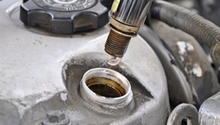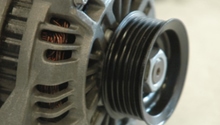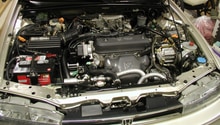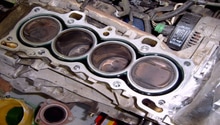Honda Accord: Why is My Car Losing Power?
If you notice your Honda Accord is losing power, take immediate measures to address it. This article gives you tips on how to detect if your Honda Accord is losing power, what's causing it, and the possible solution.
This article applies to the Honda Accord (1990-2002).
Loss of power in any car is characterized by engine misfire, low fuel economy, or other factors. If a car loses power and the issues causing it are not addressed, it can result in hazardous situations coupled with expensive repairs. This article explores the possible causes of why your Honda Accord's engine is losing power.
Step 1 – Check the alternator
In a car, the alternator charges the battery that powers all the electrical components. If its faulty, the engine loses power. If you start your Honda Accord and all you hear is a click, it could be the alternator (or the battery is dead). Test a faulty alternator by conducting the headlight test. This test requires one person to press down on the accelerator with the car in park mode, and the other observes the headlights. If the headlights flicker, dim, or get brighter when the accelerator pedal is pressed down, then your alternator is faulty. If the headlight brightness is constant, then your alternator is fine. Alternatively, the alternator can be tested using a voltmeter by touching the alternator with one probe, and the ground with the other. If the voltage from the alternator exceeds 13v, it's good. A faulty alternator also causes your Honda Accord to lose power when driving, and it may grind to a halt. An alternator charge, according to Honda Tech forums experts, should maintain the engine at idle even when the battery is removed. Loose alternator belts can also cause loss of power for your Accord.
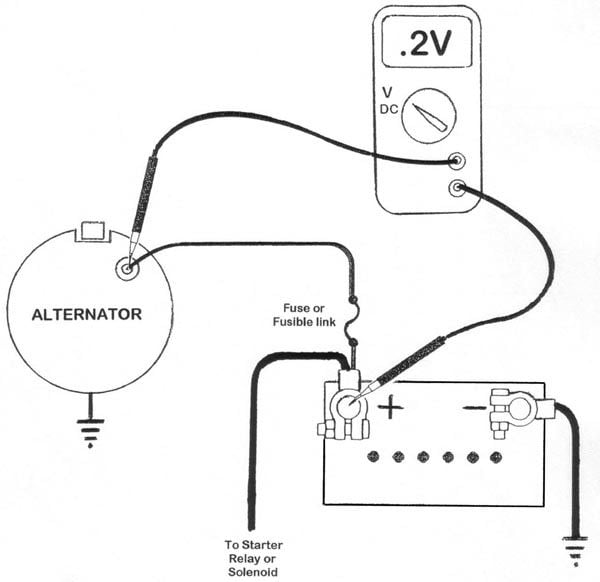
If the alternator is okay, it's advisable to monitor the condition of the battery.
Step 2 – Check the battery
There are instances where even with the engine is turned off, the battery power continues to be spent. This is what motoring experts call parasitic battery drain. The drain can be caused by lights remaining on, stuck relays, control modules not switching off, or other mechanical faults that drain the Honda Accord's battery power. Tracing the source of these drains through your Honda Accord's power receptacles helps isolate the source of the drain. This will ensure your car doesn't lose its power by failing to crank when starting, or when in motion. Testing a battery can be accomplished with a voltmeter. Touch the prongs to the battery terminals, if the battery is putting out 12.7v or more, it's good. To check the drain of the battery, test the voltage after driving the vehicle, let it sit for a few hours, and then test the voltage again. If there is a significant change between the two numbers, then the battery is either dying or something is draining it.

Pro Tip
A poorly grounded battery will compromise electrical output. As such, grounding the battery will ensure no power is lost. Also, loose cables to battery or alternator can cause the Honda Accord to lose power.
If the battery checks out, it's time to check your fuel pressure.
Step 3 – Check fuel pressure
Low fuel pressure hampers the performance of the engine, indicating problems of fuel delivery. The delivery problems can be caused by a clogged and dirty fuel filter. Fuel filters are usually recommended to be changed approximately every 100,000 miles. To test fuel pressure, locate the fuel pressure regulator in the fuel line (it is usually to the side of the engine), and there should be a fitting on top of the regulator that will accept a pressure gauge. If the gauge is reading close to 40psi, then your fuel pressure is good.

If the fuel pressure is good, time to check for vacuum leaks.
Step 4 – Check engine vacuum leaks
A vacuum leak is another cause of an engine power loss, and is difficult for a car novice to isolate. For any engine to operate at optimum levels, the air/fuel combustion mixture needs to be the right amounts. The proper amount of air has to be there for proper combustion to occur in the Honda Accord. If there is a leak (vacuum) in the engine, air that is not measured enters the engine and upsets the combustion balance. As a result, you hear a loud hissing/whistle sound coming from the engine, which is most noticeable while idling. Common sources of vacuum leaks are gaskets, or any sort of rubber seals around the intake. If you believe that you have a vacuum leak, try the following test. With the engine running, gently spray carburetor cleaner along the intake tract, and listen for the leak to silence or for the car's idle to noticeably dip. This would expose any leaks in the system.
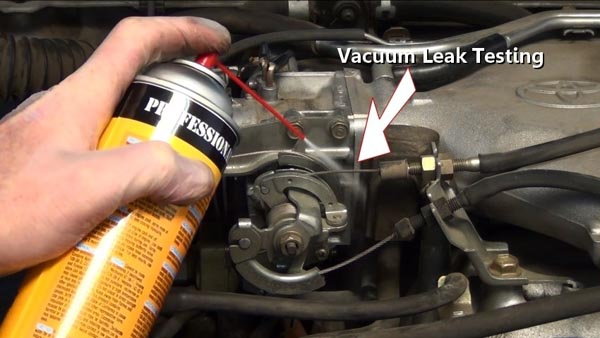
Why is My Car Losing Power?
Related Discussions
- Battery Drain Issue - Honda-Tech.com
- Power Loss After Driving - Honda-Tech.com
- Do I Have a Vacuum Leak? - Honda-Tech.com

